Rick R. Reed's Blog, page 12
January 4, 2022
What Inspired Me to Write THE Q

The Q is one of the books I'm most proud of. It also has the distinction of being the hardest to classify.
It chronicles one night at a small town gay bar in the foothills of the Appalachians (which is where I grew up) where all the locals gather. Through the course of one revelatory night, a memorable cast of characters come forward to share their stories—there’s heartbreak, missed connections, falling in love, falling out of love, making tough decisions, the exposure of secrets…and a lot more.
There are a few books that inspired my desire to tell a story through individual glimpses into different lives over the course of one pivotal night. Spoon River Anthology, Winesburg, Ohio, and the Elizabeth Strout books, Olive Kitteridge and Olive, Again. All of these books basically weave short stories together to create a novel. I loved that idea and have had it in the back of my head for a while.
On a visit to my hometown, which is on the Ohio River and in the Appalachian foothills, I went with my sister one night to a dance club and casino in West Virginia. To draw people in to use the casino, the place has a live band for dancing every Saturday night and I watched all the regulars who come to dance and socialize and thought how they each have a story. And therein my idea for The Q was born.
ABOUT THE BOOK
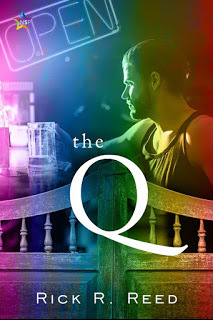
Step out for a Saturday night at The Q—the small town gay bar in Appalachia where the locals congregate. Whose secret love is revealed? What long-term relationship comes to a crossroad? What revelations come to light? The DJ mixes a soundtrack to inspire dancing, drinking, singing, and falling in (or out) of love.
This pivotal Saturday night at The Q is one its regulars will never forget. Lives irrevocably change. Laugh, shed a tear, and root for folks you’ll come to love and remember long after the last page.
BUY THE Q
December 31, 2021
My Top Ten 2021 Movies
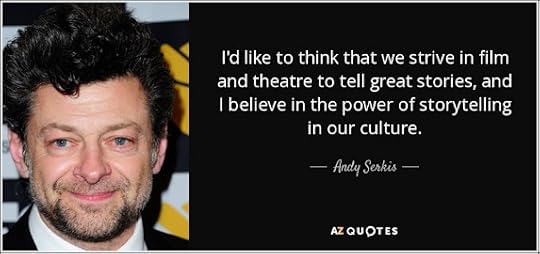
Here are my Top 10 Movies of 2021. Note that I'm including a few streaming "series" as movies with the caveat that they were one-offs, standing alone and were, essentially, long-form movies broken up into episodes. So, without further ado, here's what I really appreciated in 2021:
*WEST SIDE STORY. One of my all-time favorite movies is the original 1961 version. I first saw it as a little boy, alone in the State Theater (a glorious former vaudeville palace) in East Liverpool, Ohio. It left me in tears that extended to my time standing outside among snowflakes falling, waiting for my mom to pick me up. The new version was just as moving, but added layers of depth and characterization the original simply didn't have. No one was more shocked than I that I actually preferred it to the original film.
* THE POWER OF THE DOG. Lyrical, deliberate, and darkly poetic, Jane Campion's take on westerns is one that will haunt me for a long time to come. Magic.
* SWAN SONG. Filmed near where I grew up in Ohio, this comic and ultimately poignant story of an elderly drag queen making good on a promise to do the makeup for his nemesis for her funeral demonstrates how we can hate someone and also love them fiercely, showing how life is filled with disturbing and delightful contradictions.
* BELFAST. A black and white homage to the troubled Ireland of the early 1960s, Kenneth Branagh's nod to his own boyhood becomes a lens in which we view the historical through the personal. It crossed time and frame of reference barriers to resonate with me personally, as all good art does.
* DON'T LOOK UP. Wow. Biting satire and social commentary so on the mark that the laughter was undercut by nausea because it was so reflective of our current times. Great performances all around.
* TICK, TICK, BOOM. I am one of those folks who absolutely adores Jonathan Larson's RENT. I've seen it multiple times on stage (skip the movie version, please). TICK, TICK, BOOK shows the genesis of the show and its creator's passion and, lurking in the shadows, his all-too-soon demise, under the masterful direction of Lin-Manuel Miranda.
* TIME. This prison drama, hyper realistic, is on Britbox and appears in three episodes. Everything from the writing to the directing, to the acting, is a masterclass in realism. The film is about hope beneath the darkest of circumstances and will stay with you long after the final credits roll.
* THE GUILTY. A showcase and nearly a one-man show for star Jake Gyllenhall, this super intense story of a few hours in an LA 911 response center, is not for the faint of heart. Powerful, moving, dark, and ultimately redemptive, this is one that's getting far too little buzz in my opinion (streams on Netflix).
* WHITE LOTUS. An HBO Max miniseries from the brilliantly-quirky mind of Mike White, this series gripped me from its opening to its closing. Featuring a career-best from the always wonderful Jennifer Coolidge.
* MARE OF EASTTOWN. Both a meditation on small-town life and an intricate murder mystery, this was some of the best television I've ever seen. And Kate Winslet and Jean Smart, as mother and daughter, demonstrate how transformative good acting can be.
Honorable mentions: Nine Perfect Strangers (Hulu), Dopesick (Hulu), It's a Sin (HBO Max), Queen's Gambit and Midnight Max (Netflix).
What were your favorites?
December 22, 2021
2021 Year In Writing

2021 was my year to color outside the lines.
From a raw and poignant portrayal of a pivotal night in a small-town gay bar, to a tale of a tortured--and addicted--ghost in Chicago, to a story of ultimate sacrifice for love, to my depiction of a serial killer's reign of terror in Chicago, the year proved to me that good stories need not be hindered by genre restrictions.
On deck for 2022: a romantic thriller called TOXIC and a magical realism novel that explores domestic abuse in a unique way, SEASPRAY.
Hope you had a happy reading and/or writing year!
THE Q
Step out for a Saturday night at The Q—the small town gay bar in Appalachia where the locals congregate. Whose secret love is revealed? What long-term relationship comes to a crossroad? What revelations come to light? The DJ mixes a soundtrack to inspire dancing, drinking, singing, and falling in (or out) of love.
This pivotal Saturday night at The Q is one its regulars will never forget. Lives irrevocably change. Laugh, shed a tear, and root for folks you’ll come to love and remember long after the last page.
WOUNDED AIR
Rick and Ernie found the perfect apartment on Chicago’s West Side. Before they’re settled, Rick begins having all-too-real disturbing “dreams.” Each time, an emaciated young man with sad brown eyes appears, terrifying and obsessing him.
From their next-door neighbor, Paula, Rick learns about Karl and Tommy, who lived there before them. Tommy’s mysterious disappearance pains her. When she shares a photo of her with Tommy and Karl, Rick is shocked and troubled. Tommy is the man who appears to him in his dreams.
The ghostly visitations compel Rick to uncover the truth about Tommy’s disappearance. It’s a quest that will lead him to Karl, Tommy’s lover, who may know more about Tommy’s disappearance than he’s telling, and a confrontation with a restless spirit who wants only to—finally—rest in peace.
IMMORTAL THINGS
By day, Elise draws and paints, spilling out the horrific visions of her tortured mind. By night, she walks the streets, selling her body to the highest bidder.
And then they come into her life: a trio of impossibly beautiful vampires: Terence, Maria, and Edward. When they encounter Elise, they set an explosive triangle in motion
Terence wants to drain her blood. Maria wants Elise . . . as lover and partner through eternity. And Edward, the most recently converted, wants to prevent her from making the same mistake he made as a young abstract expressionist artist in 1950s Greenwich Village: sacrificing his artistic vision for immortal life. He is the only one of them still human enough to realize what an unholy trade this is.
Immortal Things will grip you in a vise of suspense that won’t let go until the very last moment…when a shocking turn of events changes everything and demonstrates—truly—what love and sacrifice are all about.
OBSESSED
I kill, therefore I am ...
Voices slam through the corridor of his wounded mind. The words of his dead sister cry out. His parents' taunts fill the silent room where he sits and waits -- waits for the murderous rage, filling him with strength, driving him to kill, to touch the cold flesh, taste the warm blood -- to feel alive again ...
A witness has seen him, but his killing only turns her on and now she wants to protect him. His wife suspects him, but the private detective she hired cannot stop him. Joe MacAree fears nothing -- except that he may no longer be human. The thirst that drives him is relentless, moving deeper and deeper into his own shattering, private realm, where each murder is a delicious new gift of life, where revulsion is beauty, and the obsession will never let him go.
"A harrowing ride through cutting-edge psychological horror, this one's got a vicious bite. Rick R. Reed's Obsessed is a twisted nightmare." -- Douglas Clegg, bestselling author
December 16, 2021
Two Holiday Tales That Will Warm Your Heart and Make You Think
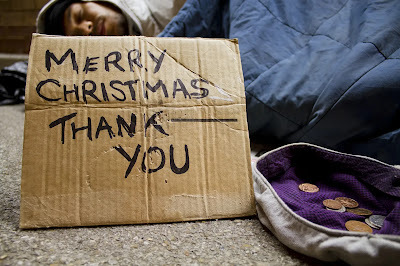
In the mood for a little holiday poignancy? I have two tales that just might bring a tear or two to your eye....

AN OPEN WINDOW
BLURB
Two men. One Christmas Eve that changes the courses of both their lives.
Henry’s homeless and only wants a warm place to sleep on the coldest night of the year. A forgotten open window in a darkened house entices Henry inside with the promise of warmth and comfort. He knows it’s bad, but he promises himself he’ll be out before the owner wakes on Christmas morning. Except he oversleeps and the homeowner, Jim, discovers a bearded stranger sawing logs under his dining room table. When the shock and the drama that ensues dies down, Henry and Jim discover that they might have found, quite unexpectedly, the Christmas miracle they’d both been longing for—love and home.
Divine Magazine said:
REVIEW
An Open Window is told retrospectively, which is a tactic that works really well for this short because Reed focuses the reader's attention on Henry and Jim's meeting.
Reed poignantly highlights the plight of homeless people at Christmas and immediately we only feel sympathy for Henry rather than judging him for his choice to enter the open window in someone else's home. I think our emotions are intensified by the fact that Henry thinks about being found frozen on Christmas morning with a mixture of "terror and relief".
Another man who is alone on this Christmas Eve is Jim, who has had a lucky, if upsetting, escape from a man who could not give him the love he deserved. Every reader knows that Christmas is a time to be spent with loved ones and for that reason, we feel compassion for Jim, who feels that "he might never celebrate the holiday again".
Reed brings these two men together unconventionally but beautifully and I adore the fact that Reed is able to capture the Christmas spirit of goodwill in An Open Window. I turned the final page and was left with all the right warm and fuzzy feelings.
An Open Window may only be 21 pages but it is a story perfectly formed!
BUY
JMS Books
Amazon Kindle
AND...
MATCHES
 I've always loved the darkly beautiful fairy tales of Hans Christian Andersen. "Matches" is my gay take on "The Little Match Girl".
I've always loved the darkly beautiful fairy tales of Hans Christian Andersen. "Matches" is my gay take on "The Little Match Girl".BLURB
Christmas Eve should be a night filled with magic and love. But for Anderson, down on his luck and homeless in Chicago's frigid chill, it's a fight for survival. Whether he's sleeping on the el, or holed up in an abandoned car, all he really has are his memories to keep him warm-memories of a time when he loved a man named Welk and the world was perfect. When Anderson finds a book of discarded matches on the sidewalk, he pockets them. Later, trying to keep the cold at bay hunkered down in a church entryway, Anderson discovers the matches are the key to bringing his memories of Welk, happiness, and security to life. Within their flames, visions dance-and perhaps a reunion with the man he loved most.
BUY for .99 on Amazon Kindle (FREE for Kindle Unlimited Readers)
December 8, 2021
THE MAN FROM MILWAUKEE is a 2021 Rainbow Award Winner!
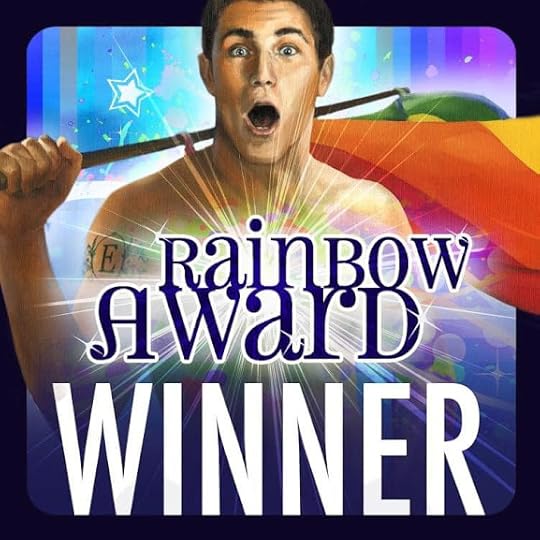
I am thrilled to announce that The Man from Milwaukee won the 2021 Rainbow Awards in two categories:
Best Gay Book of the Year Best Gay Mystery/Thriller
Read on to find out what the book is all about, including an excerpt. Watch the video book trailer. And get your own copy. All below!

About the Book
It’s the summer of 1991 and serial killer Jeffrey Dahmer has been arrested. His monstrous crimes inspire dread around the globe. But not so much for Emory Hughes, a closeted young man in Chicago who sees in the cannibal killer a kindred spirit, someone who fights against the dark side of his own nature, as Emory does. He reaches out to Dahmer in prison via letters.
The letters become an escape—from Emory’s mother dying from AIDS, from his uncaring sister, from his dead-end job in downtown Chicago, but most of all, from his own self-hatred.
Dahmer isn’t Emory’s only lifeline as he begins a tentative relationship with Tyler Kay. He falls for him and, just like Dahmer, wonders how he can get Tyler to stay. Emory’s desire for love leads him to confront his own grip on reality. For Tyler, the threat of the mild-mannered Emory seems inconsequential, but not taking the threat seriously is at his own peril.
Can Emory discover the roots of his own madness before it’s too late and he finds himself following in the footsteps of the man from Milwaukee?
Video Trailer
Excerpt
The Man from MilwaukeeRick R. Reed © 2020All Rights Reserved
Headlines
Dahmer appeared before you in a five o’clock edition, stubbled dumb countenance surrounded by the crispness of a white shirt with pale-blue stripes. His handsome face, multiplied by the presses, swept down upon Chicago and all of America, to the depths of the most out-of-the-way villages, in castles and cabins, revealing to the mirthless bourgeois that their daily lives are grazed by enchanting murderers, cunningly elevated to their sleep, which they will cross by some back stairway that has abetted them by not creaking. Beneath his picture burst the dawn of his crimes: details too horrific to be credible in a novel of horror: tales of cannibalism, sexual perversity, and agonizing death, all bespeaking his secret history and preparing his future glory.
Emory Hughes stared at the picture of Jeffrey Dahmer on the front page of the Chicago Tribune, the man in Milwaukee who had confessed to “drugging and strangling his victims, then dismembering them.” The picture was grainy, showing a young man who looked timid and tired. Not someone you’d expect to be a serial killer.
Emory took in the details as the L swung around a bend: lank pale hair, looking dirty and as if someone had taken a comb to it just before the photograph was snapped, heavy eyelids, the smirk, as if Dahmer had no understanding of what was happening to him, blinded suddenly by notoriety, the stubble, at least three days old, growing on his face. Emory even noticed the way a small curl topped his shirt’s white collar. The L twisted, suddenly a ride from Six Flags, and Emory almost dropped the newspaper, clutching for the metal pole to keep from falling. The train’s dizzying pace, taking the curves too fast, made Emory’s stomach churn.
Or was it the details of the story that were making the nausea in him grow and blossom? Details like how Dahmer had boiled some of his victim’s skulls to preserve them…
Milwaukee Medical Examiner Jeffrey Jentzen said authorities had recovered five full skeletons from Dahmer’s apartment and partial remains of six others. They’d discovered four severed heads in his kitchen. Emory read that the killer had also admitted to cannibalism.
“Sick, huh?” Emory jumped at a voice behind him. A pudgy man, face florid with sweat and heat, pressed close. The bulge of the man’s stomach nudged against the small of Emory’s back.
Emory hugged the newspaper to his chest, wishing there was somewhere else he could go. But the L at rush hour was crowded with commuters, moist from the heat, wearing identical expressions of boredom.
“Hard to believe some of the things that guy did.” The man continued, undaunted by Emory’s refusal to meet his eyes. “He’s a queer. They all want to give the queers special privileges and act like there’s nothing wrong with them. And then look what happens.” The guy snorted. “Nothing wrong with them…right.”
Emory wished the man would move away. The sour odor of the man’s sweat mingled with cheap cologne, something like Old Spice.
Hadn’t his father worn Old Spice?
Emory gripped the pole until his knuckles whitened, staring down at the newspaper he had found abandoned on a seat at the Belmont stop. Maybe if he sees I’m reading, he’ll shut up. Every time the man spoke, his accent broad and twangy, his voice nasal, Emory felt like someone was raking a metal-toothed comb across the soft pink surface of his brain.
Neighbors had complained off and on for more than a year about a putrid stench from Dahmer’s apartment. He told them his refrigerator was broken and meat in it had spoiled. Others reported hearing hand and power saws buzzing in the apartment at odd hours.
“Yeah, this guy Dahmer… You hear what he did to some of these guys?”
Emory turned at last. He was trembling, and the muscles in his jaw clenched and unclenched. He knew his voice was coming out high, and that because of this, the man might think he was queer, but he had to make him stop.
“Listen, sir, I really have no use for your opinions. I ask you now, very sincerely, to let me be so that I might finish reading my newspaper.”
The guy sucked in some air. “Yeah, sure,” he mumbled.
Emory looked down once more at the picture of Dahmer, trying to delve into the dots that made up the serial killer’s eyes. Perhaps somewhere in the dark orbs, he could find evidence of madness. Perhaps the pixels would coalesce to explain the atrocities this bland-looking young man had perpetrated, the pain and suffering he’d caused.
To what end?
“Granville next. Granville will be the next stop.” The voice, garbled and cloaked in static, alerted Emory that his stop was coming up.
As the train slowed, Emory let the newspaper, never really his own, slip from his fingers. The train stopped with a lurch, and Emory looked out at the familiar green sign reading Granville. With the back of his hand, he wiped the sweat from his brow and prepared to step off the train.
Then an image assailed him: Dahmer’s face, lying on the brown, grimy floor of the L, being trampled.
Emory turned back, bumping into commuters who were trying to get off the train, and stooped to snatch the newspaper up from the gritty floor.
Tenderly, he brushed dirt from Dahmer’s picture and stuck the newspaper under his arm.
*
Kenmore Avenue sagged under the weight of the humidity as Emory trudged home, white cotton shirt sticking to his back, face moist. At the end of the block, a Loyola University building stood sentinel—gray and solid against a wilted sky devoid of color, sucking in July’s heat and moisture like a sponge.
Emory fitted his key into the lock of the redbrick high-rise he shared with his mother and sister, Mary Helen. Behind him, a car grumbled by, muffler dragging, transmission moaning. A group of four children, Hispanic complexions darkened even more by the sun, quarreled as one of them held a huge red ball under his arm protectively.
As always, the vestibule smelled of garlic and cooking cabbage, and as always, Emory wondered from which apartment these smells, grown stale over the years he and his family had lived in the building, had originally emanated.
In the mailbox was a booklet of coupons from Jewel, a Commonwealth Edison bill, and a newsletter from Test Positive Aware. Emory shoved the mail under his arm and headed up the creaking stairs to the third floor.PurchaseNineStar Press | Amazon ebook | Amazon Paperback

Meet the Author
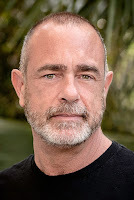
Rick R. Reed is an award-winning and bestselling author of more than fifty works of published fiction. He is a Lambda Literary Award finalist. Entertainment Weekly has described his work as “heartrending and sensitive.” Lambda Literary has called him: “A writer that doesn’t disappoint…” Find him at www.rickrreedreality.blogspot.com. Rick lives in Palm Springs, CA, with his husband, Bruce, and their fierce Chihuahua/Shiba Inu mix, Kodi.
Facebook | Twitter | Instagram
Inspired by a Fever Dream SKY FULL OF MYSTERIES
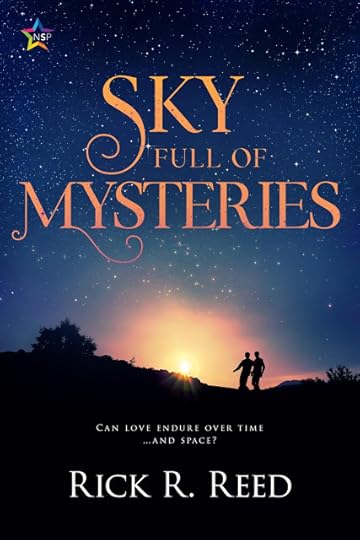 Sky Full of Mysteries is one of my more unusual novels, inspired by a fever dream, it plays with science-fiction elements to explore the lure of new love versus long-term established love and commitment.
Sky Full of Mysteries is one of my more unusual novels, inspired by a fever dream, it plays with science-fiction elements to explore the lure of new love versus long-term established love and commitment.
ABOUT THE BOOK What if your first love was abducted and presumed dead—but returned twenty years later?
That’s the dilemma Cole Weston faces. Now happily married to Tommy D’Amico, he’s suddenly thrown into a surreal world when his first love, Rory Schneidmiller, unexpectedly reappears.
Where has Rory been all this time? What happened to him two decades ago, when a strange mass appeared in the night sky and lifted him into the heavens? Rory has no memory of those years. For him, it’s as though only a day or two has passed.
Rory still loves Cole with the passion unique to young first love. Cole has never forgotten Rory, yet Tommy has been his rock, by his side since Rory disappeared.
Cole is forced to choose between an idealized and passionate first love and the comfort of a long-term marriage. How can he decide? Who faces this kind of quandary, anyway? The answers might lie among the stars….
BUY NineStar Press
Amazon Kindle
(Paperback also available)
EXCERPT
Cole listened to the close of Tommy’s office door, the start of the new-age music he listened to as he wrote. Today it was Yiruma. Cole waited a moment, in case Tommy should open the door, and then headed down the hall to the master bedroom. He knew Tommy would not emerge until dinnertime, or even later, if he really got involved.
He sat down on the king-size bed, running his hand over the orange and gray quilt. Part of him simply wanted to collapse backward on it, close his eyes, and sleep for hours. The hum of the window air conditioner was soothing, and he knew he could be under within minutes if he allowed himself.
But no, it was the anniversary. He would do what he always did on this day. He pushed himself up and off the comfortable memory-foam mattress and walked to his closet. One of the advantages of the condo, which was built in the 1920s, was its massive size, a total of nearly 2500 square feet. Their bedroom was enormous and included two walk-in closets, one here and one they’d added off the en suite master bath.
Cole’s was in the bedroom, and even though he knew Tommy wouldn’t hear it, he opened his own closet double doors quietly, wincing at the familiar squeak of the hinges. Cole felt a rush of heat rise to his face, despite the frosty air-conditioned chill all around him. Guilt induced that heat, Cole knew. Like an addict, he’d told himself dozens of times he should put away his obsession with Rory. It wasn’t healthy, not for him, and certainly not for his marriage. Secrets never were. Tommy was understanding, sure, but Cole knew he didn’t realize the depth of Cole’s feelings for Rory, not after all these years. Tommy didn’t realize how much he still yearned for Rory, especially around this time of year.
Cole squatted down on the floor, pushing aside his rather sizable collection of running shoes, Cons, and sandals—no wingtips for this boy—and from the far back recesses of the closet, hidden by shadows and garment bags, pulled forth the old black Reebok shoebox. The box held his and Rory’s entire history. Sad thing was, there wasn’t even enough to fill it halfway.
As he opened the box, Cole wondered why he even bothered. In more logical moments, he told himself that the Rory he still loved didn’t even exist anymore, no matter what had happened. If he was alive, he would have aged, just like Cole, by twenty years. So much could happen, physically, emotionally, spiritually, to a person in two decades. Most people weren’t even close to the selves they were twenty years ago.
Still, he dug into the box. There were only a half dozen or so items inside, and Cole knew each and every one of them by heart. He could just as easily have sat in the kitchen and brought each item out in his mind, examined it, and put it back.
But there was something about touching the mementos. There was an electric connection to each item. He likened it to movies he’d seen about psychics—and how they could get a certain energy from a person off an object they’d touched.
First, there was his old ID for the Bally gym at Century City mall. Cole fingered it and laughed, remembering a time when he did have the energy for going to the gym on a regular basis. Thank God he did, because it was where he’d met Rory. At first sight, he knew that all he’d wanted to do was kiss the guy. He believed, and still did, in a way, that to kiss this kind of nerdy, uncoordinated, bespectacled young man would be a revelation and a kind of salvation for him. He’d be home. His wish had come true later that same day. And Cole had not been disappointed.
What they shared had been far too brief, but it had been real.
Next, there was a cereal box top Cole had hung on to through all these years, simply because it was Rory’s favorite breakfast food. It was kind of endearing that Rory loved Froot Loops so much. Cole used to kid him about how childish it was, that he should eat something more grown-up, sensible, something with a little fiber, for Christ’s sake. “Real men don’t eat Froot Loops,” he’d tease, playfully whacking the back of Rory’s head as he sat on their thrift-store couch, hunched over a mixing bowl full of the stuff, just going to town. “You want me to put some cartoons on?” Cole remembered asking, and Rory had nodded, grinning through a mouthful of milk and unnaturally colored, fruit-flavored confetti.
As the weeks and then months passed with no sign of Rory, he’d hung on to the cereal in the pantry. It wasn’t until he moved in with his sister, Elaine, and she was helping him pack up for his move, that he rescued the box of cereal from the trash, where she’d thrown it.
“Oh no, not this.” He’d snatched it out of the wastebasket.
“You and your sweet tooth,” she said, taking the box from him. She opened it and dug around inside, grinning at him. When she put some in her mouth, though, she spit it into the sink. “That stuff is stale, Cole. Tastes like sugary cardboard.” She replaced the box in the trash.
He waited until she was in the bathroom to rip off the top of the box as a souvenir. Even then it was stupid. But somehow the cereal was a concrete reminder of Rory, who could sometimes be a little kid in a very smart man’s body.
There was a poem Rory had written him, late one night after the third time they’d made love. It was scrawled on a yellow Post-it. Bad rhymes and nearly short enough to be a haiku, it was still the only poem a man had ever written to Cole, about Cole. Even Tommy hadn’t, and he made his living as a writer. Cole got a lump in his throat as his fingertips danced over the six lines and the words “You’re all my heart.”
He missed his sister too, although not nearly as much as Rory. She’d passed away the year before, much too soon, a victim of breast cancer. He knew he should get out to Arlington Heights more often and see his nephew, Bobby, who was in high school now.
He returned his attention to the contents of the box. Here was the photo of Rory unpacking in their new apartment. He wasn’t looking at the camera, his glasses had slipped down his nose, and his reddish-brown mop was a mess, sticking up in several different directions. Cole recalled Rory didn’t even know when Cole snapped the picture. He was too absorbed in what he was unpacking—his computer game software, his most treasured possession. Back then Cole thought the photo would be funny, something to rib Rory about once he’d had it developed at Walgreens.
But now, with the sunlight hitting Rory’s head just so, the youthful exuberance on his face, even the bend of that lithe young body, the photo had become sacred to Cole, a reminder of their beginning a new life together.
How short that life had been! If he had known it would all be snatched away just a few weeks later, would he have behaved any differently? That was the thing about life, though; we were never given the courtesy of a warning when something bad was about to strike. We could only mumble bitter what-ifs, which tasted like ash in our mouths.
Cole set the photo back in the box, eyes welling with tears. Why do I do this to myself? Once upon a time, it seemed there was a point to it, but no more. He was a middle-aged married man mourning a too-brief love from when he was in his prime. Pathetic.
He didn’t look at the rest—a takeout menu, a note Rory had left on the nightstand shortly before he disappeared, letting Cole know he’d gone to the gym—he simply put the lid back on the shoebox and then sat for a moment, cross-legged on the floor, staring at it.
As he did every year, he thought I really should get rid of that box. Burn it, maybe. And just like every year, he shoved it to the back of the closet, hiding it behind and under shoes.
It was his history. No one could take that away.
“Hon?” Tommy called from the hallway. “What are you thinking for dinner?”
December 6, 2021
Check Out When Love Calls Your Name by LBJ Harris
Title: When Love Calls Your Name
Author: LBJ Harris
Publisher: NineStar Press
Release Date: 11/30/2021
Heat Level: 3 - Some Sex
Pairing: Male/Female, Male/Male
Length: 91100
Genre: 1970s Historical, LGBTQIA+, 1970s, promiscuity, in the closet, college, bisexual, sexual discovery

Description
When Desmond goes off to college, he allows himself to be more open about his attraction to men rather than the secreted-away experiences he’s had in the past.
As Desmond grapples with the pressures and expectations society forces upon him, while trying to understand what his heart is telling him to do, he is initiated into a high-class gay underworld and attracts the attention of an influential—and potentially dangerous—closeted businessman.
Set in the fictional coastal town of Oakvale, New Jersey in the mid-1970s—a decade of alternative eroticism, experimentation, and promiscuity—When Love Calls Your Name follows Desmond as he discovers who he is and who he is expected to be.
ExcerptWhen Love Calls Your Name
LBJ Harris © 2021
All Rights Reserved
Fantasies. What teen doesn’t have them? We’re taught that boys’ fantasies revolve around lust, while girls dream of love and romance. As a young man, I certainly fit that mold. And while my boyhood fantasies came true—to an extent—they evolved somewhere along the way, from lust to love. Moreover, they ended up clouding my judgment so completely and ruling my heart so firmly that they changed my life forever.
That evening, thoughts raced through my head as I stepped onto the field at the Oakvale High School stadium. The band played “Pomp and Circumstance” from the stands, and I wondered to myself, How many times have I sat up there, playing this same damn song for past graduates? How many times have I watched others walk the full length of this football field and wished it was me? Now it was my turn!
I scanned the stands for my family, but the crowd of faces was a blur. Carla—my senior-year sweetheart—was by my side, and she had never looked prettier. Now, it had taken a little manipulation on my part to get her there next to me, but it had been worth it. Or so I thought.
The day couldn’t have been more perfect. Ask, visualize, claim it, and it will be so.
At the height of the day, it had climbed to eighty degrees: warm enough for us to catch a swim at the Ocean Club. Around four in the afternoon, a light breeze cooled the air down to seventy degrees. The glowing full moon peeked over the eastern horizon, the sun not yet having set, far to the west, with a cool pink and blue salutation. High above, the heavens were a dome of sparkling diamonds. The stage was set. My high school graduation had arrived.
My name is Desmond Cameron Dawson. I am a Pisces, born on March 19; the middle of three children. My older brother is Calvin Vincent Jr., aged 25, whom we called Vinny. He attended law school at George Washington University in DC. My younger sister is Nina Nicole, who was to be a freshman at Oakvale High that upcoming fall.
I had what was known as bougie parents (upwardly mobile Black people), who achieved their success ten years ago. They decided to move us away from Newark, New Jersey, to this white, ocean-side town called Oakvale. It was just off the Garden State Parkway, halfway to Atlantic City.
Calvin Vincent Sr. and Mildred Nicole (Cal and Millie to each other; Mom—or, endearingly, Momma—and Dad to us) owned a small but prosperous advertising firm, with the original branch in Newark and a newer one here. Business was good—so good that my folks had achieved upper-middle-class status. They were good United Methodists too, raising their children in a predominantly African American church. We kids were acolytes; we sang in the choirs, did youth ministries. If you’re a United Methodist too, you know the drill.
So, what the hell were we doing in good old Whites-ville, USA? To hear our parents tell it, they’d moved us down here to ensure we’d get a good education.
And speaking of education, isn’t it funny, the things that run through your mind at milestones in your life? For instance, standing with my fellow seniors, waiting to march across that field, I thought to a time when—only five years old—I had been so sick I was unable to start school with the other kids my age.
I’d spent a year visiting over a dozen specialists, undergoing every test conceivable, trying out all sorts of medications—all to no avail. My illness had been so bad, making me weak to the point where I couldn’t get out of bed even to go pee, that doctors had finally given up hope, telling my parents the devastating news they would likely lose their youngest son at some point that year.
Momma wouldn’t accept it—not at all! She prayed long and hard—feverishly hard—and God answered her prayers. Miraculously, some weeks later, I had a full recovery. From then on, she would always tell me I was her prizewinning fighter.
I skipped from this memory to a present one—to what I considered my second major accomplishment of my life (after surviving my illness). Imagine this, if you can: I was about to become the first African American in my predominantly white high school to graduate at the top of my class. First out of three hundred and ninety-six students! Yep—I beat all those white folks to the top of the list! And despite being in law school, my brother Vinny hadn’t come close to matching me in the brains department: he graduated high school forty-fifth out of three hundred and fifty.
My parents were proud of me, to say the least. Their crazy-acting, late-blooming middle kid managed to get his shit together and come out on top. Top of my class, awards in French, history, and politics, captain of the debating team, top track athlete, and in the marching band, to boot. Momma cried tears of joy when the guidance counselor called to give her the news; Dad couldn’t stop calling our relatives to boast about his boy.
You want to know how hard it was to become valedictorian? Well, I knew for a fact the girl who finished second to the top hated me with a passion. Miss Dirty-Blonde-Bombshell-With-Glasses had worked her ass off for every top grade she earned. But as for me? By the time grade nine rolled around, I’d figured out the game. From that point onward, I found all this school shit straight up easy. Yeah. I’m one of those kids.
To an outside observer, everything in my life looked pretty good, right?
The truth was, I couldn’t wait to be done with it. I was ready to leave this small, meddlesome, dysfunctional community that would have chewed me up and spit me out without even blinking an eye, had I let it.
It was all good, though—I was on the verge of being done and had a foolproof plan to get out of here: I’d aced all my courses in school, gotten involved in the “right” extracurriculars, and scored 1600 on my SATs. And halfway through my senior year, I found out I had been accepted to some pretty prestigious universities, most of them with full scholarships: Princeton, Yale, Harvard, Temple, and Dartmouth.
Not wanting to be too far from Momma but needing to put a bit of distance between me and Oakvale, I chose Temple University in Philadelphia—an hour and a half down I-95. Temple had a great communications and journalism program there—rated one of the top ten programs in the country. I’d decided I was going to be a television correspondent, and come September, I would be taking my first step toward television stardom!
But back to graduation day. That ended up being a condensed reminder of the things I wanted to forget about high school, beginning—and not ending—with the memory of Samuel Garrison, an unexpected fantasy twist.
I guess I need to explain some things before I go on.
Samuel Garrison. My best and oldest friend in all of Oakvale. He and I had both been having…problems with our girlfriends that whole year. We’d ended up talking and consoling each other for much of that time. And before you ask the all-important question of who was getting poontang and who wasn’t: well, I was the less fortunate.
Samuel and I spent a lot of time barhopping during that year as well. Two years prior, they had lowered the legal drinking age to eighteen. We had died and gone to heaven, my posse and I—they turned eighteen at different points during our senior year, while I had reached the drinking age the year before. And believe me, they didn’t miss a beat trying to catch up to me. We quickly established some favorite watering holes we took girls to, but we also reserved a spot for gents only.
Every Friday night, we would sneak out to this strip club called The Cabaret. We couldn’t get enough of the place. Well, at least, Samuel couldn’t.
Back to the posse—there were four of us who went through Oakvale High School together: Matt, Samuel, Michael, and me. We all played trumpet in the band together. We ran indoor and outdoor track. Two of us were on the yearbook committee. Matt and I acted in school plays together. We may as well have lived together, we spent so much time in each other’s company.
I was the oldest of our group and the only brother. Did that make me feel uncomfortable at times? Yes! I was the butt of Samuel’s too-frequent racist jokes, and as I look back now, he was a real redneck. Yet there was more to him than that.
When I moved to Oakvale, I was just an average seven-year-old kid. I didn’t know anything about racism or prejudice. All I knew was that I wanted a friend—someone I could simply play with. Samuel was that person.
The day we moved in, I sat on the curb outside my new home, “staying out of the way of the movers.” Across the street sat a little boy, watching me. We stared at each other wordlessly for quite a long time. Finally, he yelled across the street, saying, “My name’s Samuel; what’s yours?”
I called back, “Desmond.”
Then he surprised me by saying, “You wanna be friends?”
And not wanting to seem overly keen on the idea, I said, “Mmm…okay.”
He stood up, looked both ways, and ran across the street. He held out his hand and I mine. We shook. And then he hugged me. It felt really strange, like a spark arcing between us; from that moment on through high school, we were essentially inseparable.
Despite being close, Samuel and I didn’t attend the same school until high school. His parents didn’t care much for public schools, so he attended St. Catherine’s Catholic School until the end of eighth grade. The Catholics didn’t have a high school, so he had no choice but to transfer to Oakvale High for ninth grade. I introduced him to Matt and Michael, and just like that, he was one of the boys. I knew from then on, high school life would take me and him to another level. And it did.
Purchase | Books2ReadMeet the AuthorLBJ Harris was born on October 1, 1958 in Neptune, New Jersey. He is one of seven children born to civil rights leaders. His mother chose his first name because it was unique, as she knew her baby would grow to be.
When he was seven years old, his parents moved the family to an all-white community, to ensure he and his siblings received a good education, and to guarantee their safety against opponents of their parent’s civil rights work.
Harris knew from an early age that he loved performing on stage. Throughout his early years and young adulthood, he performed in church choirs, his high school band, and in the high school drama club. Upon graduating from high school, his love of the arts led him to West Chester State College in Pennsylvania.
In 1979, Harris earned his Bachelor of Arts in Speech, Communications and Theater. While at college, he worked for the Three Little Bakers Dinner Theatre as a performer, lead dancer, and stage designer. His set designs and acting roles earned him major acclaim in local newspapers.
In 1981, he moved back to New Jersey where he formed a two-man performing duo, a joint company KapSig and eventually his own company, ‘Le Noir Cabaret Repertory Theater Company’.
Harris would move to writing, directing and producing originally written musicals for his local community as founder of Le Noir Cabaret. Those works included: ‘Moments in Love’, ‘An African American Musical Review’, ’SIBONISO’, ’Anna Mae’, and ‘Ashbury Cove’.
Harris and his theatre troupe toured his musical SIBONISO in 1994 at the newly renovated Paramount Theater, Asbury Park, NJ, and at the Carver Community Center in San Antonio, Texas.
In 1989 Harris chose to become a single father, adopting the first of his four children. He elected to place his arts career on hold after the arrival of twins in 1998. Over the next 15 years he focused on raising his four children and one grandnephew.
In August of 1999, while completing a second Master’s Degree in Education, Harris saw the birth of one more child: his novel, “When Love Calls Your Name”. He finished the manuscript in April of that next year, though ultimately shelved it, along with a number of other unpublished works.
After his youngest two children graduated from high school in June of 2014, Harris chose to return to the stage. That October, he appeared in the ensemble cast of African American men entitled, “Messages from Men: Machismo, Magen, Mirth & Maturity” at the Cape May Playhouse. He wrote and performed an original piece, “Letter to My Children”, in dedication to his children.
With a renewed yearning to pick up his career where he left off, Harris anticipates publishing his first fiction novel, “When Love Calls Your Name” in the fall of 2021.
Facebook | Twitter | PinterestGiveawayDecember 3, 2021
New and Notable: Turnabout by Laury Egan
Title: Turnabout
Author: Laury A. Egan
Publisher: NineStar Press
Release Date: 11/30/2021
Heat Level: 3 - Some Sex
Pairing: Female/Female
Length: 78500
Genre: Historical (20th Century), LGBTQIA+, teenage romance, lesbian, lesbian love, sailing, PTSD, Vietnam War, 1960s, first love, mother-daughter relationships, young writers, class differences, New Jersey, coming-of-age
Add to Goodreads
Description
The summer of 1964. Four teenage lives intertwine as each searches for love, identity, and a passage through painful family conflicts, social isolation, and the confusion of sexual orientation.
During a sailing class, four teenagers meet.
Jessie Schaffer is fourteen, an intelligent and solitary girl, who dreams of becoming a writer. When she sees nineteen-year-old Lindsay Ames, the instructor, standing on a dock, sunlight illuminating her blond hair and blue eyes, Jessie falls in love but is too afraid of her feelings and what they mean.
In an attempt to reassure herself she is “normal,” Jessie becomes involved with two boys in the class: Kenny Crenshaw, also fourteen, a darkly handsome and flirtatious guy, and Calvin Brayburn, a year younger, who will be in their freshman class because he’s academically brilliant.
On the first day of sailing, Cal is smitten with Jessie, though he is hindered by shyness. As the romantic relationships take unexpected twists, Jessie, Lindsay, Calvin, and Kenny relate their individual stories, their hopes, fears, and longings, all the while being buffeted by intense pressures.
Set in coastal New Jersey, the plot roams from its beautiful rivers to lush scenes in St. Thomas and Vietnam’s jungles during the war.
ExcerptTurnabout
Laury A. Egan © 2021
All Rights Reserved
Jessie
“I’m not going!” I state this as a firm fact; my mother hears acquiescence.
“And wear your new clam diggers and that boat-neck shirt I bought you.”
“No! I feel like an idiot in those clothes!”
My mother, who dresses perfectly for every occasion, arches an eyebrow, one that took hours to sculpt. “You are attending sailing class, and I want you to look nice. We will hear no more about it, Jessie.”
When the singular “I” migrates into the royal “we,” my goose is cooked.
“I will see you in the car. Ten minutes,” she says.
After she leaves the room, I go to the closet, slip the fake nautical clothes off hangers, and throw them on the bed where I slump beside them. “I’ll look like a fool,” I mutter as I stare at the blue-and-white-striped shirt and the white clam diggers decorated with red piping and baby sailboats. I shut my eyes in frustration and follow imperial orders.
«
I’m standing by the entrance to the Lenape Sailing and Yacht Club, hoping my mother will reconsider and take me home. I turn to plead with her, but she’s already backing the big black T-Bird out of the drive, its whitewalls spitting sand four feet past its chugging tailpipe. For a minute, I picture the car getting stuck but no luck. It’s me who’s stuck.
I scan the sky and beach. The morning sun has taken a hike, leaving a mash of clouds in its wake. The breeze sucks the tops off the cattails and raises goosebumps on my arms and the whitecaps on the river. With no real alternative, I walk through the clubhouse’s double doors, wishing I could fly out the other side, shoot off the dock, and do a Superman back home.
Inside, it smells like salt air, tired sun, and dried old wood. About ten kids—probably my class—are milling around looking self-conscious. Even though they appear nervous, my years of experience tell me they’ll do just fine, once the preliminary jitters smooth off, while I will not. Oh, sure, I can pick up the sailing stuff, but the rest? I stand by the window, thinking I don’t like groups because groups don’t like me.
“Hi.”
I turn. A boy with thick glasses is staring at me with a curious expression. His hazel eyes, magnified by the lenses, appear intelligent. He has small cuppy ears, an epidemic of brown freckles across his face and arms, and bright-red hair cut in straight bangs and parted unevenly on the left side of his square head. The boy is a little hunched, as if he’s already apologizing for future tallness. Despite his neat green shirt and navy cotton shorts, he doesn’t wear his body comfortably. The kid looks as ill at ease as I feel.
“Hi,” I reply, though I’m lukewarm in interest. I look over the group, hoping there is someone better to hitch up with. Most of the kids are about my age. Next week, on July 5, I’m turning fourteen.
“My name’s Calvin Brayburn.”
Calvin seems younger. Perhaps twelve nudging thirteen and oblivious to the huge barrier a year’s difference makes.
“Mine’s Jessie.”
“Jessie what?” He tilts his head and squints a little, as if his poor eyesight dulls his hearing.
“Jessie Schaffer.” I’m not a chatty type, particularly with strangers, which includes just about everyone I’ve ever met. How can I lose this kid? Should I play it high and mighty or chilly-neutral? Then, the teacher enters from a side room, saving me the decision.
“Hello, everyone. I’m Lindsay Ames, your sailing instructor.”
Lindsay is tall, or at least she is from my five-foot-four perspective. Short blond curly hair. Blue eyes. Long arms and legs already tan from being outside. Can’t tell if she is a senior going to be a freshman or a freshman home from college. Probably four or five years older than I am. I breathe easier. I’m more comfortable around adults.
Lindsay hands out mimeographed papers. “The parts of a sailboat and two pages of nautical knots,” she explains. “Don’t worry—we’ll go over them, but you’ll have to memorize the parts and how to tie a bowline and a cleat hitch by next week.”
One of the girls giggles and nudges her neighbor. I don’t see anything funny about knots, but maybe that’s because I’ve already taught myself a few—Dad said this would be expected.
“It’s too windy to go out today,” Lindsay continues, “so we’ll get acquainted and learn some of the basics.”
She takes a seat in a wooden armchair, and everyone sprawls onto couches and chairs around her as if she’s going to tell us a story. I sit on the floor opposite and stare at the blue Keds’ stamps on the back of my white sneakers.
“Let’s go around the room.” She nods to a girl with a ponytail. “What’s your name?”
When the kid smiles, silver braces glint like chrome on a Chrysler grille. “Melinda Whitmore,” Ponytail replies. “Hi!” She jerks her hand in the air and gives half a wave. She’s growing boobs that overwhelmed her training bra a long while ago.
“Hi, Melinda,” Lindsay replies. “Welcome aboard.”
I’m not positive I like this sailor heartiness, but so far, Lindsay seems okay. She then points to a guy with black, wavy hair and dark Romeo eyes.
“Hey,” he says in a false sheepish tone. “I’m Kenny Crenshaw.”
Melinda and the other girls exchange blushing glances. Kenny is instantly crowned “king” without any contest. I’m no slouch at rating pecking orders in social gatherings. Of course, none of the girls look at me for confirmation, a fact I also file away in my mental account ledger.
As if he senses his royal anointment, Kenny squares up his shoulders and drops his voice. “I already know how to sail,” he explains. “My dad has a boat.”
“Oh? What kind?” Lindsay asks.
Kenny Crenshaw smiles, confidence spreading across his face. “It’s a thirty-two-foot O’Day.”
“Nice boat,” the instructor says, smiling. “So, you must be quite accomplished.”
He stares at his feet and shrugs, as if he’s embarrassed. In that moment, my dislike of him rushes in like a squall.
“Yes, I am,” he answers. “Sort of.”
The “sort of” is another attempt to appear modest, though it doesn’t wash with me. His smug perfection stings like a pissed-off wasp. We’ll see who the better sailor is. I don’t have a clue why I’m feeling so competitive.
Melinda’s friends are Janey and Gretchen. The three of them are jump-rope types. That’s how I used to classify the popular girls in elementary school. I never mastered their games—skipping rope or their other activity—flirting—and still nourish a fine disdain for both. Sure, back then, the girls let me play sometimes, so I wasn’t on the outer orbit of Pluto, but I wasn’t really accepted, which is typical of the flip-flop nature of my life. Graduation from eighth grade didn’t improve my standing with boys either, and neither did the spring dance, a perfect ten on the misery scale. My mother tortured me into going solo and wearing an itchy chiffon dress and patent leather shoes that pinched. I was the weed amid the wallflowers and didn’t dance once. I’m glad we just moved to Bingham, where I’ll attend high school and hopefully make some friends.
There are four more students who introduce themselves: Steve, Cathy, Mary Lou, and Gene. The girls all cross their arms over their chests, protecting their budding growths, and the boys look careless and bored, like they’d just as soon be throwing rocks at beach rats. Everyone is sort of average looking compared to Kenny and Melinda, who, despite her dental work and giggles, has drawn the longest glances from the boys. Calvin is saving me from last place on the unpopularity register. When it’s my turn to say hello, I’m tempted to tell everyone my father has a sixty-nine-foot sailboat, just to see how it goes down. But one of my rules is that I only lie when I’m sure no one will catch on. Because I don’t know who makes boats that size, the last thing I want is King Kenny announcing there is no such thing. So, after giving my name, I clam up, ceding round one to him. At least Lindsay gives me a warm smile, but she smiles at all the kids.
After that, we go outside and investigate a Turnabout, a little ten-foot catboat we’re using for our lessons. Lindsay gives us the port/starboard/stern/bow info, shows us how to tell which way the wind is blowing by the little pink ribbon fluttering near the top of the mast, and demonstrates how to attach and hoist the single sail. The whole time she does this, my new friend Calvin sticks to my side tighter than a tick. Whenever I look at him, he grins like we’re already buddies. Melinda and Kenny aren’t listening to Lindsay because they’re whispering and digging elbows into each other.
Two hours later, when my mother arrives, I announce I don’t want to take sailing lessons anymore. She doesn’t listen.
 Meet the Author Laury A. Egan is the author of the YA novel, The Outcast Oracle; three suspense novels, Jenny Kidd, A Bittersweet Tale, and The Ungodly Hour; a comedy, Fabulous! An Opera Buffa; a collection, Fog and Other Stories; and a literary work, The Swimmer. Four limited-edition poetry volumes have been published: Snow, Shadows, a Stranger; Beneath the Lion’s Paw; The Sea & Beyond; and Presence & Absence. She lives on the northern coast of New Jersey where she sailed Turnabouts during her teenage years. Website | Facebook | TwitterGiveaway
Meet the Author Laury A. Egan is the author of the YA novel, The Outcast Oracle; three suspense novels, Jenny Kidd, A Bittersweet Tale, and The Ungodly Hour; a comedy, Fabulous! An Opera Buffa; a collection, Fog and Other Stories; and a literary work, The Swimmer. Four limited-edition poetry volumes have been published: Snow, Shadows, a Stranger; Beneath the Lion’s Paw; The Sea & Beyond; and Presence & Absence. She lives on the northern coast of New Jersey where she sailed Turnabouts during her teenage years. Website | Facebook | TwitterGiveaway
December 2, 2021
Chilling Video Trailer: The Man from Milwaukee

Read on to discover what The Man from Milwaukee is all about and watch the exciting and enigmatic video trailer for the book!
About the Book
It’s the summer of 1991 and serial killer Jeffrey Dahmer has been arrested. His monstrous crimes inspire dread around the globe. But not so much for Emory Hughes, a closeted young man in Chicago who sees in the cannibal killer a kindred spirit, someone who fights against the dark side of his own nature, as Emory does. He reaches out to Dahmer in prison via letters.
The letters become an escape—from Emory’s mother dying from AIDS, from his uncaring sister, from his dead-end job in downtown Chicago, but most of all, from his own self-hatred.
Dahmer isn’t Emory’s only lifeline as he begins a tentative relationship with Tyler Kay. He falls for him and, just like Dahmer, wonders how he can get Tyler to stay. Emory’s desire for love leads him to confront his own grip on reality. For Tyler, the threat of the mild-mannered Emory seems inconsequential, but not taking the threat seriously is at his own peril.
Can Emory discover the roots of his own madness before it’s too late and he finds himself following in the footsteps of the man from Milwaukee?
Video Trailer
Watch on YouTubeExcerpt
The Man from MilwaukeeRick R. Reed © 2020All Rights Reserved
Headlines
Dahmer appeared before you in a five o’clock edition, stubbled dumb countenance surrounded by the crispness of a white shirt with pale-blue stripes. His handsome face, multiplied by the presses, swept down upon Chicago and all of America, to the depths of the most out-of-the-way villages, in castles and cabins, revealing to the mirthless bourgeois that their daily lives are grazed by enchanting murderers, cunningly elevated to their sleep, which they will cross by some back stairway that has abetted them by not creaking. Beneath his picture burst the dawn of his crimes: details too horrific to be credible in a novel of horror: tales of cannibalism, sexual perversity, and agonizing death, all bespeaking his secret history and preparing his future glory.
Emory Hughes stared at the picture of Jeffrey Dahmer on the front page of the Chicago Tribune, the man in Milwaukee who had confessed to “drugging and strangling his victims, then dismembering them.” The picture was grainy, showing a young man who looked timid and tired. Not someone you’d expect to be a serial killer.
Emory took in the details as the L swung around a bend: lank pale hair, looking dirty and as if someone had taken a comb to it just before the photograph was snapped, heavy eyelids, the smirk, as if Dahmer had no understanding of what was happening to him, blinded suddenly by notoriety, the stubble, at least three days old, growing on his face. Emory even noticed the way a small curl topped his shirt’s white collar. The L twisted, suddenly a ride from Six Flags, and Emory almost dropped the newspaper, clutching for the metal pole to keep from falling. The train’s dizzying pace, taking the curves too fast, made Emory’s stomach churn.
Or was it the details of the story that were making the nausea in him grow and blossom? Details like how Dahmer had boiled some of his victim’s skulls to preserve them…
Milwaukee Medical Examiner Jeffrey Jentzen said authorities had recovered five full skeletons from Dahmer’s apartment and partial remains of six others. They’d discovered four severed heads in his kitchen. Emory read that the killer had also admitted to cannibalism.
“Sick, huh?” Emory jumped at a voice behind him. A pudgy man, face florid with sweat and heat, pressed close. The bulge of the man’s stomach nudged against the small of Emory’s back.
Emory hugged the newspaper to his chest, wishing there was somewhere else he could go. But the L at rush hour was crowded with commuters, moist from the heat, wearing identical expressions of boredom.
“Hard to believe some of the things that guy did.” The man continued, undaunted by Emory’s refusal to meet his eyes. “He’s a queer. They all want to give the queers special privileges and act like there’s nothing wrong with them. And then look what happens.” The guy snorted. “Nothing wrong with them…right.”
Emory wished the man would move away. The sour odor of the man’s sweat mingled with cheap cologne, something like Old Spice.
Hadn’t his father worn Old Spice?
Emory gripped the pole until his knuckles whitened, staring down at the newspaper he had found abandoned on a seat at the Belmont stop. Maybe if he sees I’m reading, he’ll shut up. Every time the man spoke, his accent broad and twangy, his voice nasal, Emory felt like someone was raking a metal-toothed comb across the soft pink surface of his brain.
Neighbors had complained off and on for more than a year about a putrid stench from Dahmer’s apartment. He told them his refrigerator was broken and meat in it had spoiled. Others reported hearing hand and power saws buzzing in the apartment at odd hours.
“Yeah, this guy Dahmer… You hear what he did to some of these guys?”
Emory turned at last. He was trembling, and the muscles in his jaw clenched and unclenched. He knew his voice was coming out high, and that because of this, the man might think he was queer, but he had to make him stop.
“Listen, sir, I really have no use for your opinions. I ask you now, very sincerely, to let me be so that I might finish reading my newspaper.”
The guy sucked in some air. “Yeah, sure,” he mumbled.
Emory looked down once more at the picture of Dahmer, trying to delve into the dots that made up the serial killer’s eyes. Perhaps somewhere in the dark orbs, he could find evidence of madness. Perhaps the pixels would coalesce to explain the atrocities this bland-looking young man had perpetrated, the pain and suffering he’d caused.
To what end?
“Granville next. Granville will be the next stop.” The voice, garbled and cloaked in static, alerted Emory that his stop was coming up.
As the train slowed, Emory let the newspaper, never really his own, slip from his fingers. The train stopped with a lurch, and Emory looked out at the familiar green sign reading Granville. With the back of his hand, he wiped the sweat from his brow and prepared to step off the train.
Then an image assailed him: Dahmer’s face, lying on the brown, grimy floor of the L, being trampled.
Emory turned back, bumping into commuters who were trying to get off the train, and stooped to snatch the newspaper up from the gritty floor.
Tenderly, he brushed dirt from Dahmer’s picture and stuck the newspaper under his arm.
*
Kenmore Avenue sagged under the weight of the humidity as Emory trudged home, white cotton shirt sticking to his back, face moist. At the end of the block, a Loyola University building stood sentinel—gray and solid against a wilted sky devoid of color, sucking in July’s heat and moisture like a sponge.
Emory fitted his key into the lock of the redbrick high-rise he shared with his mother and sister, Mary Helen. Behind him, a car grumbled by, muffler dragging, transmission moaning. A group of four children, Hispanic complexions darkened even more by the sun, quarreled as one of them held a huge red ball under his arm protectively.
As always, the vestibule smelled of garlic and cooking cabbage, and as always, Emory wondered from which apartment these smells, grown stale over the years he and his family had lived in the building, had originally emanated.
In the mailbox was a booklet of coupons from Jewel, a Commonwealth Edison bill, and a newsletter from Test Positive Aware. Emory shoved the mail under his arm and headed up the creaking stairs to the third floor.PurchaseNineStar Press | Amazon ebook | Amazon Paperback

December 1, 2021
World AIDS Day December 1 and My Semi-Autobiographical Novel, CAREGIVER
 Today, on World AIDS Day, I'm #grateful for the release of my award winning novel, CAREGIVER, based on my experiences as an AIDS buddy in Tampa, FL in the early 90s. This edition includes an afterword that reveals the incredible true story behind the book.
Today, on World AIDS Day, I'm #grateful for the release of my award winning novel, CAREGIVER, based on my experiences as an AIDS buddy in Tampa, FL in the early 90s. This edition includes an afterword that reveals the incredible true story behind the book.
ABOUT THE BOOKWinner of the 2013 EPIC eBook Award for Best Contemporary RomanceIt's 1991, and Dan Calzolaio has just moved to Florida with his lover, Mark, having fled Chicago and Mark's addictions to begin a new life on the Gulf Coast. Volunteering for the Tampa AIDS Alliance is just one part of that new beginning, and that's how Dan meets his new buddy, Adam. Adam Schmidt is not at all what Dan expected. The guy is an original - witty, wry, and sarcastic with a fondness for a smart black dress, Barbra Streisand, and a good mai tai. Adam doesn't let his imminent death get him down, even through a downward spiral that sees him thrown in jail. Each step of Adam's journey teaches Dan new lessons about strength and resilience, but it's Adam's lover, Sullivan, to whom Dan feels an almost irresistible pull. Dan knows the attraction isn't right, even after he dumps his cheating, drug-abusing boyfriend. But then Adam passes away, and it leaves Sullivan and Dan both alone to see if they can turn their love for Adam into something whole and real for each other. BUY





